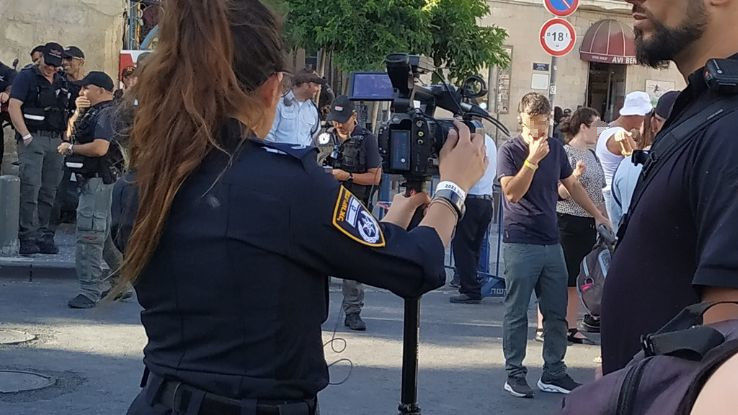Restrict and Regulate Police Documentation at Demonstrations
- ACRI
- Jul 23, 2022
- 2 min read
Updated: Apr 17, 2023

Over the past two years, there has been no police directive or protocol to regulate police use of documentation at demonstrations (videos, stills, drones, and more). Documentation is often recorded by undercover police officers very close to protesters' faces in circumstances wherein demonstrations proceed quietly and in an orderly fashion. In recognition of the potential violation of individual rights, the police addressed this matter years ago through a directive issued by the National Headquarters of the Israel Police. Yet the directive was retracted in 2022 and has not been replaced. Responses to freedom of information requests indicate that since the directive was repealed, administrative work has been underway to formulate policy in the field.
This implies that in the meantime, for nearly two years and counting, there has been no administrative directive regulating police use of documentation at demonstrations: there is no protocol regarding suitable timing and means of documenting demonstrations; how the documentation will be archived, where it will be saved, and for how long; how the documented material will be used; how to ensure the security of the archived information, etc. Each police station decides at its own discretion whether to send out a drone or video crew to document a demonstration taking place in its sector; each station decides what to do with the recorded material, how long to save it, and how to process information.
On July 25, 2022, ACRI appealed to the Ministry of Justice, demanding clear regulations and restrictions regarding the matter to prevent disproportionate violations of participants' rights in demonstrations and protest events. Prior, to understand the scope of the phenomenon and its impact, we circulated a questionnaire online that was answered by approximately 120 people (if you have encountered this phenomenon, you can still fill out the survey below). A total of 88% of respondents answered that they had encountered video documentation at demonstrations, 70% through photography, and 50% through drones. The responses indicate that the vast majority of demonstrators perceive police documentation as an intimidation tactic, aimed to deter them and generate fear of incrimination.
In an appeal to the Deputy Attorney General, Attorney Anne Suciu and Freedom of Protest and Field Coordinator Sivan Tahel claimed that police documentation of demonstrators is a sensitive act that has severe consequences on freedom of expression and protest and the right to privacy. The police violate citizens' basic rights when documenting citizens participating in demonstrations and archiving footage for future use. The act of documentation itself, regardless of how or whether it is used at all, generates a chilling effect and deters protest participants. The chilling effect has further increased following the news that police will be equipped with facial recognition systems that may be used—whether in the present or near future—to decipher the identity of each protest participant.
We thus requested that the police be urgently instructed to limit their practice of documenting demonstrators and to establish clear regulations and restrictions regarding the circumstances that justify documentation and its means of execution, archiving, and erasure, to protect the privacy of those documented and access to the material.








